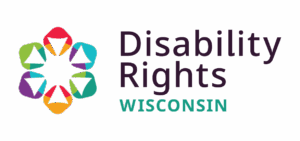
Every person has the right to be free from abuse and neglect. People with disabilities tend to suffer these at much higher rates than the general population, so we are committed to ensuring that people with disabilities can be safe wherever they are; whether in their homes, in their communities, or in nursing homes or institutions. If you believe your rights have been infringed, or if you believe you have been the victim of a crime, please do not hesitate to contact us.
Your Rights
- You have the right to be treated with respect and dignity.
- You have the right to decide who can touch your body in any way.
- You have the right to be safe wherever you live and play.
- You have the right to say “No” if someone is doing something you don’t want – even if the person doing it is someone you like.
If You Are Abused:
- You have the right to tell someone that you were abused.
- You have the right to talk to police about your abuse.
- You have the right to get help and accommodations to tell your story.
- You have the right to ask for someone trusted (like a therapist or counselor) to talk with you about your abuse.
What is Considered Abuse or Neglect?
There are many different types of abuse and neglect, but all types of abuse involve one person or group of people inflicting harm onto another person by either performing an action, or failing to perform an action. The following are just a few examples of abuse that should be reported:
- Physical Harm (example: pushing, hitting, or shoving).
- Restraint (example: being tied down).
- Forced Medical Treatment (example: having to take medication you do not want and do not legally have to take).
- Verbal Abuse (example: name calling or yelling).
- Neglect (example: when someone is supposed to take care of certain things for you, but they do not).
- Sexual Abuse (example: sexual assault, inappropriate touching, or sexual harassment).
- Financial Exploitation (example: someone stealing money, not spending your money on you and your needs).
How do I Report Abuse?
Disability Rights Wisconsin is not a first responder agency for suspected abuse, neglect or exploitation.
If someone is in immediate, life-threatening danger, call the police or 9-1-1 immediately.
To report abuse of an elder (60 or older) contact your county Elder Abuse helpline.
To report abuse of an adult (18-59) contact Adult Protective Services.
The Division of Quality Assurance (DQA) is responsible for assuring the health, safety, and welfare of the citizens of Wisconsin. If you believe that a caregiver, agency, or DQA regulated facility has violated the law, you can file a complaint with DQA.
To report child abuse or neglect contact Child Protective Services.
For additional information on Domestic Abuse, visit the End Abuse Wisconsin website.
For suspected sex/human trafficking: Call 1-888-373-7888 (TTY: 711)|Text 233733
When suspected abuse, neglect, or exploitation involves a person with a disability or mental illness, particularly when that abuse occurs in a program or facility funded by the state, we encourage you to also report this suspected abuse, neglect, or exploitation to Disability Rights Wisconsin’s Protection and Advocacy system.
Disability Rights Wisconsin also provides advocacy assistance to victims of crime with disabilities regardless of whether that crime has been reported.
Strategies
Disability Rights Wisconsin may be able to help if you or someone you know has been abused or neglected in an institution or community setting. We advocate for the rights of people with disabilities to live their lives free of abuse or neglect. Our attorneys provide legal counsel for people who may have experienced abuse or neglect, our advocates fight tirelessly to prevent abuse and neglect in homes and institutions, and we fight for laws protecting the rights of people with disabilities to be free of abuse and neglect.
